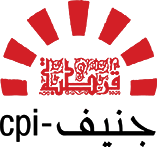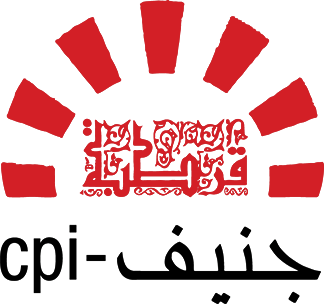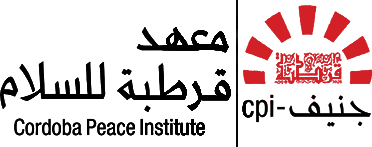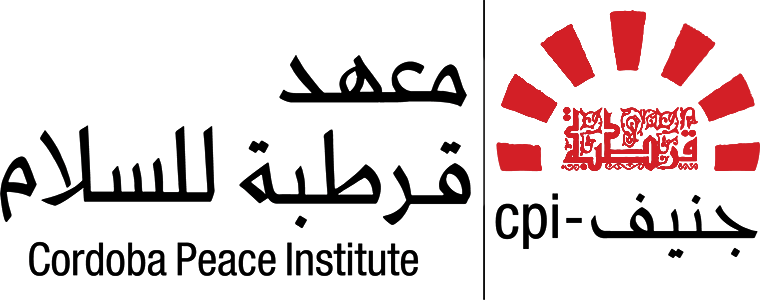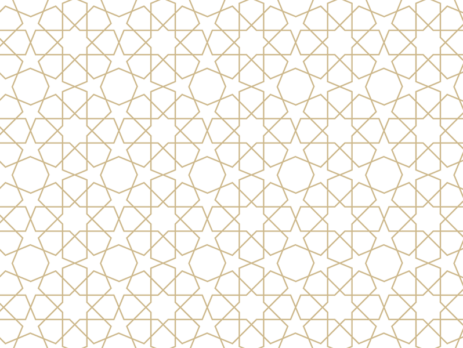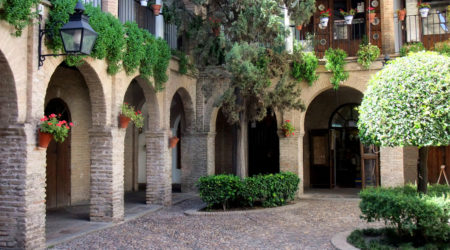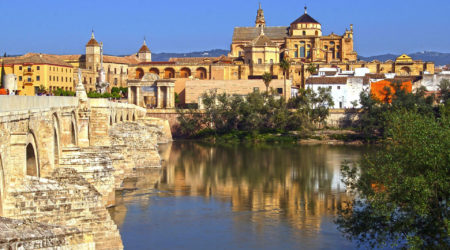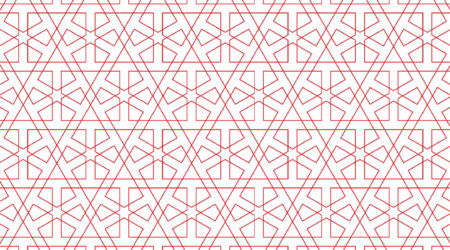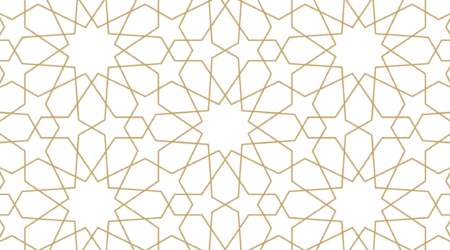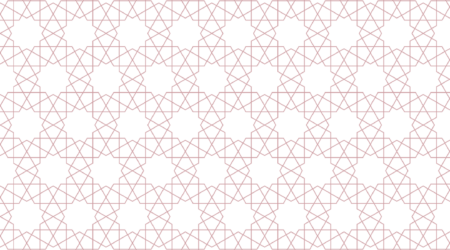The Cordoba Update 4/2016

| In line with the programmes and projects funded by partners of the Cordoba Foundation of Geneva, updates and information are included under the following geographical regions and themes: | |
North Africa:
|
Sahel region:
|
Middle East:
|
Cross-regional:
|
ISLAMIST-SECULAR RELATIONS /
RELATIONS ENTRE SÉCULIERS ET ISLAMISTES
No contribution on this topic.
TRANSITION AND POLITICAL PARTICIPATION /
TRANSITION ET PARTICIPATION POLITIQUE
Tunisia, 21.02.2016: How to Reform Tunisia’s Security Sector
The renewal of the state of emergency in Tunisia last week coupled with yet another pay raise for security forces, following their protests last January, have refocussed discussion about the reform of the security sector as Tunisia navigates its way through its political transition five years on from the 2011 uprising. The latest effort in this regard has been the splitting up of the ministry of interior into two portfolios, whereby one will be concerned with local community affairs, while the other would focus on security matters. While the move is welcome, experts such as Yezid Sayigh argue that it is not enough and a great deal remains to be done if the series of large budget injections, training, and equipment improvement allocated to the security sector were to yield the desired outcomes. Sayigh argues that the Islamist-Secular polarisation since 2011 has derailed the process of the security sector reform from the outset. Besides, the political tensions and rivalries have undermined the authority of even those career interior ministers who were appointed to lead the task, negating thereby the “faulty assumptions” that “insiders” know how to operate inside the “‘black box” of the ministry of interior. Furthermore, the lack of “sufficient unity of purpose, effective political coalition building and social consensus, or coherent reform policies” meant that “salary increases, looser legal controls … has only allowed [the security sector] to retrench and resist being made transparent and accountable.”
Sayigh recommends an institutional re-design of the security sector that would ensure its compliance with the rule of law, citizens’ rights, and public oversight by means of parliamentary committees and civil society organisations. It should, Sayigh insists, be made clear to security sector professionals that career improvement, hiring and promotion are “tied to improvements in performance and compliance with legal, political, and financial accountability.” There will always be trade-offs, Sayigh explains, but a firm stand by the government is necessary for “ending security sector impunity.”
Links for more information:
http://carnegie-mec.org/2016/02/05/bringing-tunisia-s-transition-to-its-security-sector
http://carnegie-mec.org/2016/02/05/ar-62592/itmr(Arabic version)
http://www.crisisgroup.org/en/regions/middle-east-north-africa/north-africa/tunisia
http://www.crisisgroup.org/fr/regions/moyen-orient-afrique-du-nord/afrique-du-nord/Tunisia (French version)
Egypt, 17.02.2016: Egyptian anti-torture centre vows to defy closure
The Egyptian government’s plan to shut down a centre that aids the survivors of torture and abuse, including sexual violence, will not stop its activists from documenting cases of abuse by security forces, the centre’s founders have said. Aida Seif el-Dawla, a psychiatrist and co-founder of the Nadeem Centre for Rehabilitation of Victims of Violence, announced at a news conference that authorities told them it will be officially closed. The centre has been licensed since 1993 and has provided hundreds of torture victims with vital services including counseling and legal assistance.
Links for more information:
http://alnadeem.org/en/node/23
https://www.alaraby.co.uk/english/news/2016/2/22/egyptian-anti-torture-centre-vows-to-defy-closure
http://www.alaraby.co.uk/english/blog/2015/7/15/torture-beatings-and-forced-confessions-continue-in-egypts
Egypt, 20.02.2016: Egyptian 4-year-old faces life sentence and military court
A Cairo military court has sentenced a four-year-old boy to life in prison earlier this week, for various charges including murder. The bizarre decision came after the boy, Ahmed Mansour Karni, was listed as ‘wanted’ for murder, disturbance of the peace and damaging state property. In the same indictment, 115 others were also handed the same sentence for involvement in violence at a protest in the province of Fayoum.
Links for more information:
http://www.ibtimes.co.uk/egyptian-army-court-sentences-4-year-old-life-prison-committing-multiple-murders
https://www.alaraby.co.uk/english/news/2016/2/19/egyptian-4-year-old-faces-life-sentence-and-military-court
Egypt, 18.02.2016: Egyptians protest after policeman kills driver
Disgruntled Egyptians beat up a policeman, blocked roads, and surrounded the local security headquarters late Thursday night (18 February) after the officer killed 24-year-old taxi driver Mohamed Sayed in a dispute. Egypt’s Interior Ministry said in a statement that the killing followed an argument over the sergeant’s fare for his ride in Cairo’s Darb al-Ahmar district.
Links for more information:
http://www.madamasr.com/news/update-policeman-beaten-hospitalized-after-shooting-driver-dead
http://www.egyptindependent.com/news/police-officer-kills-driver-quarrel-over-fares-ignites-protest
Egypt, 21.02.2016: Egypt’s low ranking police officers protest
Scores of low-ranking Egyptian police officers protested on Sunday the arrest of seven of their colleagues in front of the Security Directorate in Sharqiyah province. Egypt has recently witnessed a wave of anger against police practices following the shooting incident in Al- Darb Al- Ahmar last week and the attack on two doctors in Matariyah General Hospital in January.
Links for more information:
https://www.middleeastmonitor.com/news/africa/24075
http://www.dw.com/en/deadly-police-shooting-sparks-egypt-protests/
http://english.alarabiya.net/en/News/middle-east/2016/02/21/
Egypt, 12.02.2016: Egyptian doctors revolt after police accused of attack on two medics
Thousands of Egypt’s doctors protested police abuses on Friday (12.02.2016) following an alleged attack on two doctors by policemen in a Cairo hospital. It was a rare instance of public protest, almost unheard of since the takeover of power by Egyptian military strongman Abdel Fatah al-Sissi in 2013.
Links for more information:
https://www.washingtonpost.com/world/thousands-of-egyptian-doctors-protest-police-abuse/2016/02/12/
http://america.aljazeera.com/articles/2016/2/12/egyptian-doctors-revolt-against-escalating-police-abuses
http://www.theguardian.com/world/2016/feb/13/thousands-of-doctors-in-egypt-protest
Egypt, Cross-national, 18.02.2016: In Egypt, clamp on academic freedoms sparks scholar backlash
Egyptian authorities are increasingly harassing foreign academics with restrictions, bans on entering the country and deportations. Particularly targeted are those researching anything related to Egypt’s “revolution” or social issues like organized labor—the Ph.D. topic of an Italian student recently killed under mysterious circumstances. On February, the Committee on Academic Freedom of the Middle East Studies Association (MESA), addressed a very strongly worded letter to Egypt’s Abdel Fattah Al-Sisi, Minister of Foreign Affairs Sameh Shoukry, and Minister of Interior Magdi Abdel Ghaffar, regarding the circumstances of the murder of Giulio Regeni.
Links for more information:
https://www.washingtonpost.com/world/middle_east/in-egypt-clamp-on-academic-freedoms-sparks-scholar-backlash
http://mesana.org/pdf/Egypt
http://www.huffingtonpost.com/khaledfahmy/the-death-of-giulio-regen
http://www.nytimes.com/2016/02/06/world/middleeast/outrage-grows-as-italy-investigates-students-death-in-egypt
Niger, 20.02.2016: Un candidat à la présidentielle met en doute l’honnêteté du scrutin du 20 février
Suite aux déclarations triomphalistes du président Mohamadou Youssouf (sortant), Ibrahim Yacouba, un des quinze candidats à l’élection présidentielle qui s’est tenue dimanche dernier 21 février au Niger, a mis en doute “l’honnêteté” du scrutin. Il accuse le parti au pouvoir d’instrumentaliser l’administration, la justice et d’utiliser abusivement les moyens de l’Etat pour faire élire une nouvelle fois son candidat, loin de la transparence requise.
Certains observateurs considèrent que malgré le fait que le scrutin présidentiel s’est déroulé dans le calme, les lendemains demeurent incertains dans le pays, traversé par d’énormes tensions dues à l’insécurité causée par BokoHaram et l’emprisonnement d’un leader politique, l’ancien président de l’Assemblée nationale.
Liens pour plus d’informations :
http://www.jeuneafrique.com/304081/politique/presidentielle-au-niger-un-candidat-outsider
http://www.jeuneafrique.com/304077/politique/presidentielle-niger
http://www.jeuneafrique.com/303923/politique/election-presidentielle-au-niger
Morocco, 20 February 2016: Five-year anniversary of the 20 February 2011 Movement
2016 marks five years since the beginning of a diverse number of social and political movements across North Africa, West Asia and the Sahel, called the Arab Spring, which included the 20 February Movement (M20F) of Morocco.
M20F comprised “independent youth or youth affiliated with political parties, actors of the non-governmental sector, unions, leftist parties and Islamist movements, as well as “al-Adl Wal Ihsane,” one of Morocco’s main Islamist organisations. This colourful movement espoused peaceful protests to demand reform of the Moroccan political system, and gained huge support, hosting between 37,000 and 200,000 demonstrations in one year of activity. The success of the movement exacted some concessions from King Mohamed VI, and prompted the adoption of a new constitution in July 2011. The legislative elections of November 2011, which brought the Party of Justice and Development (PJD) to power, contributed to diminishing popular mobilisation for M20F. The withdrawal of al-Adl Wal Ihsane ultimately ended it.
Morocco has been called the ‘exception’ to the so-called Arab Spring that led (to varying extents) to civil unrest and violence in Tunisia, Egypt and Syria. Some commentators have pointed to the new constitution as evidence of the democratic change brought about in the Kingdom, however others point out that, when analysed through the lens of the M20F campaign goals, there has been little real change. The palace was criticised for appointing a commission to develop the new constitution, rather than including opposition voices in the constitution-drafting process. The constitutional reforms have ultimately had little effect on the balance of power between the Moroccan parliament and the makhzen (the royal court). Importantly, the King retains the right to choose the Prime Minister from the political party that receives the largest quantity of votes, which has done little to empower the Moroccan parliamentary system. Furthermore, the reforms that came about as a result of the M20F have not prevented the repression of activists and protestors, most recently seen in the police’s violent dispersal of a teacher-trainee protest on 7 January 2016.
Looking back on M20F, one former member of its Casablanca coordination said: “It was a young movement, born on the internet, and for the first time the monarchy yielded to pressure coming from the street. The movement changed the country culturally”. Another said public opinion has gained considerable political weight since 2011, and social media are recognised as important tools at activists’ disposal. On the outcomes of M20F, one said: “We obtained the officialisation (sic) of the Amazigh language [in the new constitution] and the liberation of political prisoners [pardoned by the king in April 2011] that we were asking for. Those were symbolic victories, but we did not get the democracy that we wanted.” Some commentators argue that although M20F ended, it set the precedent for sectorial demands including the broad mobilisation of teacher-trainees protesting decrees that affect their career prospects, and unemployed nurses who demand new jobs. According to other sources, some Moroccan youth movements currently strive to recreate the spirit of M20F, for example the youth of the Socialist Union of Popular Forces (USFP), which has urged members to join all modes of activism, protest movements and active participation in the resurrection of M20F. Observers have suggested that the participation of the Students’ Union for Education System Change (UECSE) in the commemorative march, in Rabat, on Saturday 20 February, suggests that youth activism in Morocco is searching for new modes of activism. M20F may not have achieved an overhaul of the country’s political system, but it may have led to some important changes in young Moroccans’ engagement in conventional political and economic models.
For more information on the issue of the political engagement of young people in Morocco, please see the Cordoba Foundation of Geneva publication, authored by Mohammed Baske Manar (2015) “Evolving Political Participation and Civic Engagement of Moroccan Youth after the ‘Arab Spring'”.
Links for more information:
http://www.middleeasteye.net/news/five-years-have-young-moroccans-snatched-their-rights
http://telquel.ma/2016/02/18/comment-plusieurs-mouvances-politiques-tentent-raviver-esprit-20-fevrier
http://www.huffpostmaghreb.com/2016/02/21/celebration-manifestation-20-fevrier
http://www.cordoue.ch/publications/papers-a-reports/item/408-evolving-political-participation
RELATIONS BETWEEN COMMUNITIES OF DIFFERENT ETHNIC, CULTURAL AND RELIGIOUS AFFILIATIONS /
RELATIONS ENTRE COMMUNAUTÉS DE DIFFÉRENTES AFFILIATIONS ETHNIQUES, CULTURELLES ET RELIGIEUSES
Allemagne-Europe, 22 février 2016 : Multiplication des actes xénophobes en Allemagne et l’avenir de l’Union européenne en question
Les actes de violence et d’intimidation envers les réfugiés ne s’atténuent pas en Europe et particulièrement en Allemagne où leur nombre s’élève à 900 pour l’année 2015. Selon le quotidien français Le Point, parallèlement à ce phénomène, les ventes d’armes aux particuliers seraient en augmentation dans le pays.
Des évènements choquants se sont en effet déroulés en Allemagne ces derniers jours prenant pour cible des réfugiés. Dans la nuit du samedi 20 février et du dimanche 21 février, un incendie s’est déclenché dans un foyer de réfugiés de la ville de Bautzen, « suscitant lajoiede certains badauds ». D’après les premiers éléments de l’enquête il s’agirait d’un incendie criminel et cela survient seulement quelques jours après les incidents de Clausnitz, dont les vidéos choquantes qui circulent sur les réseaux sociaux ont suscité l’indignation du gouvernement allemand et d’une partie importante de la population. Sur ces images, on y voit les migrants à la fois malmenés par la police et par des individus scandant le slogan « Wir sind das Volk ! » (Nous sommes le peuple), un slogan à l’origine dirigé contre la politique communiste de l’ancienne RDA et aujourd’hui détourné par le mouvement anti-réfugiés Pegida (parti patriotique européen contre l’islamisation).
Cependant, des actes de solidarité se manifestent partout en Europe afin de lutter à la fois contre la rhétorique délétère à l’encontre des migrants, les actes de violence mais aussi pour défendre des conditions de vie décentes et humaines dans les foyers et camps pour demandeurs d’asile. Par exemple, l’acteur Jude Law s’est rendu à Calais afin de soutenir la demande de délai vis-à-vis du démantèlement de la Jungle de Calais et l’acteur et réalisateur Georges Clooney, à l’occasion de sa venue à la Berlinale, s’est entretenu avec la chancelière Angela Merkel sur la question des réfugiés. C’est à la Berlinale, le fameux festival de cinéma qui se déroule chaque année à Berlin, que le documentaire Fire at Sea du réalisateur italien Gianfranco Rosi a reçu la plus haute distinction, l’Ours d’Or du meilleur film, un signal fort au vu des récents évènements qui se déroulent en Allemagne. Ce documentaire dépeint les conditions dramatiques de la traversée de la mer Méditerranée par des milliers de réfugiés fuyant leurs pays et s’échouant pour beaucoup d’entre eux sur les plages de l’île italienne de Lampedusa.
Cela montre bien toute la difficulté de trouver un équilibre entre l’action européenne et les politiques nationales. La solidarité européenne est en effet aujourd’hui remise en question par la potentielle sortie du Royaume-Uni de l’Union européenne (Brexit) mais également par la volonté de certains pays de se désaligner de la politique migratoire de l’Europe comme l’Autriche qui a récemment déclaré ne plus vouloir accueillir que 80 réfugiés par jour, ce qui a suscité de vives réactions notamment en Allemagne, ou comme la Macédoine qui a annoncé, le 21 février dernier, la fermeture de la frontière gréco-macédonienne aux réfugiés afghans. Dans une tribune publiée par le quotidien Libération du 18 février 2016, Jean-Paul Fitoussi, professeur à Sciences-Po (Paris) et à Luiss (Rome), Karl Aiginger, directeur de l’Institut autrichien de recherche économique, professeur à l’Université d’économie et de gestion de Vienne et Paul De Grauwe, professeur émérite à l’Université Catholique de Louvain et professeur de la chaire John Paulson à la London School of Economics, appellent les dirigeants européens à opter pour une stratégie de confiance plutôt qu’une politique de la peur afin selon eux de « sortir de l’impasse ».
Liens pour plus d’informations :
http://www.lepoint.fr/europe/allemagne-polemique-sur-des-videos-de-la-police-maltraitant-des-refugies
http://www.lemonde.fr/europe/article/2016/02/21/indignation-en-allemagne-apres-une-nouvelle-attaque-contre-un-foyer
http://www.middleeasteye.net/news/refugee-documentary-fire-sea-wins-berlin-fest-top-prize
http://www.middleeasteye.net/news/german-interior-minister-blasts-unacceptable-austrian-migrant-policy
http://www.lecourrier.ch/136696/la_frontiere_greco_macedonienne_fermee_aux_afghans
http://www.middleeasteye.net/news/jude-law-leads-celebs-highlighting-refugee-plight-calais-jungle
http://www.middleeasteye.net/news/polish-magazine-sparks-fury-islams-rape-europe-cover
http://www.liberation.fr/debats/2016/02/18/l-europe-a-besoin-d-une-strategie-de-confiance
http://www.monde-diplomatique.fr/2016/02/CASSEN/54706
Europe, 15.02.2016: Racial profiling seems to be a weapon in Europe’s war on terrorism
The avowed ideals of a free, open and tolerant Europe are under assault as never before, with a surge in police spot checks and house raids ushering in what some are calling a new era of racial profiling. Minority activists have denounced alleged racial profiling in Europe for years. But never, they say, has it been so frequent and obvious.
Links for more information:
https://www.washingtonpost.com/world/europe/racial-profiling-seems-to-be-a-weapon
https://www.washingtonpost.com/world/europe/fear-and-paranoia-lead-finns-to-form-vigilante-groups
Mali, 19.02.2016 : Gestation d’une nouvelle rébellion à Ménaka
Selon la presse malienne, l’attaque du vendredi 19 février qui a fait des victimes dans les rangs de l’armée malienne, ne serait pas de l’œuvre d’Ançar Dine, mais d’un nouveau mouvement en gestation dans la zone de l’extrême nord du Mali.
Le nouveau mouvement s’appellerait Mouvement de la jeunesse pour la libération totale de l’Azawad et serait une dissidence émanant de jeunes issus d’un ensemble de groupes signataires de l’Accord d’Alger, mécontents des lenteurs dans l’application de ce dernier. Des analystes craignent que cela ne constitue le point de départ d’une nouvelle rébellion.
Liens pour plus d’informations :
http://maliactu.net/mali-menaka-une-nouvelle-rebellion-en-gestation/
http://maliactu.net/mali-chronique-de-fevrier-2016
http://maliactu.net/mali-terrorisme-il-faut-soutenir-et-proteger-mahamoud-dicko/
Tchad, 22.02.2016 : Vives tensions suite à la violation d’une mineure par les fils de dignitaires tchadiens
Le viol d’une jeune lycéenne de 16 ans par des fils de dignitaires du pouvoir tchadien a suscité une très grande vague d’indignation aussi bien à l’intérieur du pays qu’à l’étranger. D’imposantes manifestations se sont tenues dans les rues des grandes villes du pays pour exiger la fin de l’impunité dans les cas de crimes commis par les fils des dignitaires. Dépassées par l’ampleur de la mobilisation autour du cas, les autorités ont ouvert une instruction et ordonné l’arrestation des jeunes auteurs présumés. Elles ont aussi interdit toutes les manifestations publiques de solidarité liées à cette affaire.
En réaction, la plate-forme des associations de la société civile appelle à une journée « ville morte » le 24 février prochain à N’Djamena et dans la plupart des villes du pays.
Liens pour plus d’informations :
http://www.journaldutchad.com/article.php?aid=8656
http://www.journaldutchad.com/article.php?aid=8654
http://www.journaldutchad.com/article.php?aid=8653
http://www.journaldutchad.com/article.php?aid=8641
Liban, 19.02.2016 : Le Tribunal militaire remis en cause par l’affaire Samaha
Vendredi 19 février, le ministre de la Justice, Achraf Rifi, a déclaré son intention de traduire l’ancien ministre Michel Samaha devant la justice canadienne et la Cour pénale internationale (cf Cordoba Update 2/2016). En effet, l’affaire est traitée par le Tribunal militaire, instance d’exception très controversée qui est au centre de grands débats, alors que l’Alliance du 14 mars, et notamment le Courant du Futur, demandent son abolition. Selon ces derniers, cette instance est sous l’influence du Hezbollah et ne peut plus appliquer une justice impartiale et indépendante. Dans le milieu juridique, certains soulignent le fait que les juges de cette instance appliquent la loi à la lettre et que ce n’est donc pas les juges qu’il faut remettre en cause, mais le texte de loi fixant les prérogatives et les procédures de ce tribunal. Plusieurs hauts magistrats se prononcent en faveur d’une réforme de ce tribunal d’exception, invoquant de multiples dysfonctionnements. Ils signalent cependant que la proposition du Courant du Futur de transférer le dossier Samaha devant la Cour de justice ne fait que passer le dossier d’un tribunal d’exception à un autre, la Cour de justice étant une instance d’exception qui a la compétence en matière de crimes contre la sécurité de l’État et dont les verdicts sont sans appel.
Les débats sur le Tribunal militaire ne sont pas nouveaux. Ce Tribunal est inscrit dans l’agenda des réformes depuis des années, selon un juriste qui rappelle cependant que depuis 2011 la majorité des députés au sein de la commission de la modernisation des lois, aussi bien 8 Mars que 14 Mars, se sont opposés aux amendements touchant à ce tribunal. Mercredi 17 février, lors du dîner annuel de la « Ligue des anciens juges », le ministre de la Justice, AchrafRifi a annoncé un projet de loi visant à l’abolition des tribunaux d’exception et à la limitation les prérogatives du tribunal militaire.
Liens pour plus d’informations :
http://www.lorientlejour.com/article/971252/rifi-veut-traduire-michel-samaha-devant-la-justice-canadienne
http://www.lorientlejour.com/article/969615/affaire-samaha-le-debat-juridique-bat-son-plein.html
Liban, 21.02.2016 : L’Arabie saoudite gèle son aide, le ministre de la Justice, Achraf Rifi, démissionne
Achraf Rifi, ministre de la Justice, a annoncé sa démission dimanche 21 février. Dans son communiqué, le ministre démissionnaire condamne lourdement le Hezbollah, l’accusant de vouloir s’affirmer comme un Etat dans l’Etat. Ce faisant, le Hezbollah aurait « entraîné l’État dans la phase de l’émiettement et du vide, allant jusqu’à dénaturer l’identité nationale et menacer la souveraineté du Liban, son économie, son avenir et ses relations internationales et arabes », a constaté A. Rifi. Il a expliqué sa décision comme une nécessité, du fait que « le maintien en place du gouvernement serait une autorisation tacite à cette perversion de l’exercice politique, du moins un aveu d’impuissance (face au Hezbollah) ». Il a ainsi invité tout le gouvernement à démissionner « au risque de se transformer intégralement en outil dans les mains du Hezbollah ». Parmi les autres griefs mentionnés à l’encontre du Hezbollah figurent, outre la paralysie imposée par ce parti dans la présidentielle, deux grands points d’actualité : le sabotage des relations avec l’Arabie saoudite et « le blocage, par le Hezbollah et ses alliés, du transfert du dossier de Michel Samaha devant la Cour de justice, révélant l’intention du Hezbollah de mettre la main sur la justice, par le biais du tribunal militaire », toujours selon le ministre démissionnaire. Quant à ce dernier point, il a appelé tous les Libanais à signer la pétition en ligne réclamant le transfert de ce dossier devant la Cour pénale internationale.
En ce qui concerne les relations avec l’Arabie saoudite, cette démission est annoncée alors que le corps politique libanais est en alerte après l’annonce de la puissante monarchie du Golfe de geler son aide d’une hauteur de 4 milliards à l’armée nationale et aux forces de sécurité. Cette annonce serait une réponse à l’attitude du ministre des Affaires étrangères, Gebran Bassil, chef du Courant patriotique libre, qui s’est abstenu de voter la déclaration finale de la rencontre urgente des ministres des affaires étrangères de la Ligue arabe le 10 janvier dernier qui condamnait l’ingérence de l’Iran dans les affaires arabes et accusait le Hezbollah d’activités terroristes. A cette époque, Bassil avait affirmé que le Liban était présent à la rencontre pour montrer sa solidarité envers l’Arabie saoudite et pour condamner les attaques contre son ambassade et son consulat en Iran. Cependant, il avait expliqué son refus de voter la déclaration finale par la volonté du Liban de ne pas interférer dans les affaires internes des autres Etats. De plus, il avait souligné que le Liban se devait d’agir selon ses priorités qui étaient la lutte contre le terrorisme et la réduction des tensions entre sunnites et chiites.
Après l’annonce du gèle saoudien et de la démission du ministre de la Justice, les chefs de l’Alliance du 14 Mars se sont réunis dimanche 21 février et ont déclaré que les tensions dans les relations avec l’Arabie saoudite et les pays du Golfe renforçaient les dangers que courait le Liban. Ils en tiennent pour responsables le Hezbollah et ses alliés, les accusant de nuire à la stabilité financière, sécuritaire et socio-économique du pays.
Les réactions au sein du Hezbollah à l’annonce du gèle ont également été nombreuses. Le vice-président de son conseil exécutif, Nabil Qaouk, a ainsi affirmé que le régime saoudien ne pourrait changer l’identité de l’armée libanaise, ni acheter la volonté des Libanais.
Liens pour plus d’informations :
http://www.lorientlejour.com/article/971679/rifi-demissionne
http://www.lorientlejour.com/article/971528/achraf-rifi-demissionne-du-gouvernement.html
http://english.aawsat.com/2016/02/article55347762/saudi-arabia-punishes-the-iranian-project-in-lebanon
http://nna-leb.gov.lb/en/show-news/57213/
http://nna-leb.gov.lb/en/show-news/54979/nna-leb.gov.lb/fr
http://www.lorientlejour.com/article/971670/-le-regime-saoudien
VIOLENT EXTREMISM AND THE WAR ON TERROR /
EXTRÉMISME VIOLENT ET LA GUERRE CONTRE LA TERREUR
Egypt, 18.02.2016: Sinai Islamic State publishes photos of beheading of ‘army spies’
The Egyptian affiliate of the Islamic State group claims it has beheaded two men in Sinai for “spying” for the Egyptian army, posting photos online of the killings. The photos were circulated on Twitter accounts affiliated with the Sinai State, formerly known as Ansar Bayt al-Maqdis, late on Thursday (18 February 2016).
Links for more information:
http://english.ahram.org.eg/NewsContent/1/64/187987/Egypt/Politics-/Egyptian-IS-group-affiliate
https://ent.siteintelgroup.com/Jihadist-News/is-sinai-province-beheads-two-accused-spies
U.S.A., 12.02.2016: College students taught America created ISIS, war on terror worse than 9/11
ISIS was borne out of President George Bush’s decision to send troops to the Middle East after the terrorist attacks of September 11, and in actuality the war on terror has caused more harm than 9/11, college students across Washington were taught recently.
The lesson came via scholar Phyllis Bennis, who gave a series of talks at three colleges in Washington titled “Understanding ISIS and the New Global War on Terror,” also the name of her latest book.
Links for more information:
http://www.thecollegefix.com/post/26215/
http://www.amazon.com/Understanding-ISIS-New-Global-Terror
Mauritanie, 22.02.2015 :Un intellectuel en exil accuse le pouvoir de faiblir devant la corruption liée au trafic de drogue
L’intellectuel mauritanien en exil Baba Marega a accusé le gouvernement mauritanien de faiblesse devant les groupes de trafiquants de drogue qui écument la partie septentrionale du pays en toute impunité. S’exprimant à travers une tribune intitulée « La Mauritanie face à la corruption et le trafic de drogue : terreau du terrorisme dans le Sahel », il soutient que la corruption endémique et le laisser-aller font le lit des trafiquants de tout acabit qui alimentent les circuits des terroristes dans le Sahel.
Récemment, les autorités mauritaniennes ont affirmé avoir démantelé une cellule de trafiquants de drogue dirigée par deux fils d’un ancien président de la République (1980-1984). Dans leurs interrogatoires, les membres présumés de cette cellule auraient cité l’un des fils de l’actuel président et l’un de ses conseillers les plus influents. D’autres sources de presse citent des filières proches du Polisario qui seraient en connivence avec des trafiquants agissant à partir de la Mauritanie.
Liens pour plus d’informations :
http://www.cridem.org/C_Info.php?article=681017
http://www.cridem.org/C_Info.php?article=681031
Cameroun/Boko Haram, 22.02.2016 : Chrétiens et musulmans expérimentent de nouvelles méthodes de lutte contre Boko Haram au Cameroun
Les populations chrétiennes et musulmanes des zones affectées par les actions de Boko Haram ont décidé de combiner leurs efforts pour se protéger mutuellement face aux activistes du mouvement. La stratégie approuvée impliquerait que les communautés se protègent réciproquement pendant les cérémonies de prière, les musulmans assurant la garde autour des lieux de culte chrétiens pendant les messes et communions et les chrétiens autour des mosquées.
Liens pour plus d’informations :
http://fr.starafrica.com/actualites/chretiens-et-musulmans-experimentent-de-nouvelles-methodes
http://www.camer.be/49792/7:1/cameroun-le-redhac-sinsurge-contre-les-exactions-du-boko-haram
http://www.lemonde.fr/afrique/article/2016/02/10/nigeria-58-morts
The views and perspectives contained in the Weekly Update are from individual contributors and external sources, and do not necessarily reflect the opinions or position of the Cordoba Foundation of Geneva. The links are neither intended as an endorsement of particular publications nor the only source for the updates, but to connect to information in the public domain, for those interested in background or further details.
